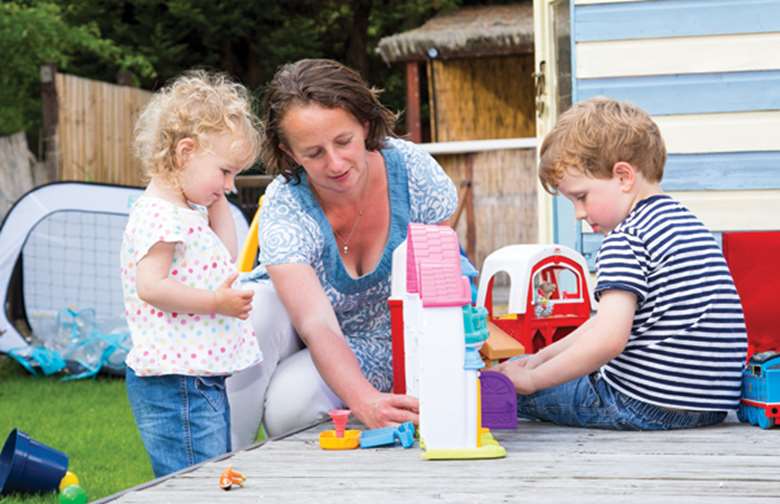As many as 1,000 children's centres now closed, study finds
Joe Lepper
Wednesday, April 4, 2018
Around 1,000 children's centres have closed since 2009, twice as many as officially acknowledged, an education charity has claimed.

The Sutton Trust said that official government figures, which show a 14 per cent drop in centre numbers from 3,632 to 3,123 between August 2009 and October 2017, are out of date and inaccurate.
Based on a survey of 124 councils, carried out in autumn last year, the charity said this is likely to be a big underestimate because there is no clear definition of a "children's centre" and official data does not keep up with closures announced locally.
While some councils that responded listed the number of centres as the same or slightly lower than the government's official Edubase data system, some gave a much lower figure.
Using the definition of "registered children's centre", based on responses from 124 councils, the report calculates there were 1,941 centres in July 2017, compared with 2,975 in August 2009 - a reduction of 1,034, or 34.8 per cent.
The report said a key factor in the difference between its findings and the government's figures is that the Edubase system does not include the very latest closures or centres that are in the process of closing.
"The Edubase system can lag the ‘real world' significantly as decisions may have been made to close centres which are still in process - or the national figures may not yet have been updated by local sources to reflect changes on the ground," states the Sutton Trust's research report StopStart.
"Thus Hampshire, which was one of the largest providers nationally with 85 centres open or planned in 2009, decided to close a large number in 2016 but still listed 79 centres in Edubase in autumn 2017."
The Sutton Trust's analysis also found that a high proportion of closures are taking place in a few areas. By last year 16 councils, which had closed at least half of their children's centres, accounted for 55 per cent of the total number of closures nationally.
Six local authorities, West Berkshire, Camden, Stockport, Bromley, Oxfordshire and Staffordshire have closed more than 70 per cent of their centres, the Sutton Trust found.
Among recommendations put forward by the charity is for the government to carry out its long-promised consultation on the future of children's centres. Former childcare minister Caroline Dinenage had insisted twice in 2017 that this would take place, but her successor Robert Goodwill failed to commit to it during a parliamentary debate.
The Sutton Trust is also concerned that the original open-access ethos of children's centres has been lost in favour of merging its services into preventative support across a wider age group.
"Good-quality early years provision makes a substantial difference in the development of children especially those who come from the poorest homes," said Sutton Trust founder Sir Peter Lampl.
"It is a serious issue that the services that Sure Start centres offer are much more thinly spread than they were a decade ago. Additionally, since 2010 there has been a precipitous decline of 30 per cent in the number of Sure Start centres. Thousands of families are missing out on the vital support they provide.
"The government should complete its long-promised review of the programme. Instead of trying to serve all age groups, children's centres should reconnect with their original purpose of promoting child and family development for the 0-5 age group."
Neil Leitch, chief executive of the Pre-school Learning Alliance, said that children's centres are a vital source of support for disadvantaged and vulnerable families but have "fallen off the government's list of priorities".
"If the government is truly committed to supporting disadvantaged and vulnerable families, it simply must ensure that children's centre services are adequately supported. This means not only greater investment, but also a much clearer policy on what children's centres are meant to achieve, and how the government intends to support them to do so," he added.
In December last year analysis of government figures showed that council spending on children's centres and early years support had fallen by nearly £700m since 2010.
Also last year Labour released Freedom of Information data that also suggests the number of children's centre closures is far higher than official figures. This data showed that the number of centres had fallen from 3,632 in June 2010 to 2,390 in April 2017.
A Department for Education spokeswoman said: "Councils will receive more than £200bn for local services, including children and young people services, up to 2019/20. In addition to this we are investing more in childcare support than any other government - around £6bn a year by 2019/20.
"It is right that we give councils the freedom to decide what services they provide for their communities as they are best placed to understand local needs and how best to meet them, whether through a children's centre building, a family hub, or another model."




